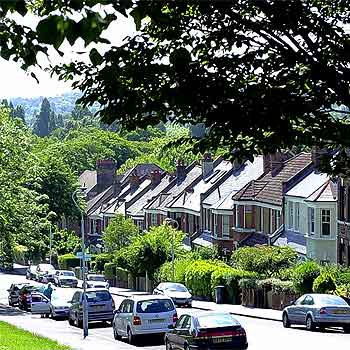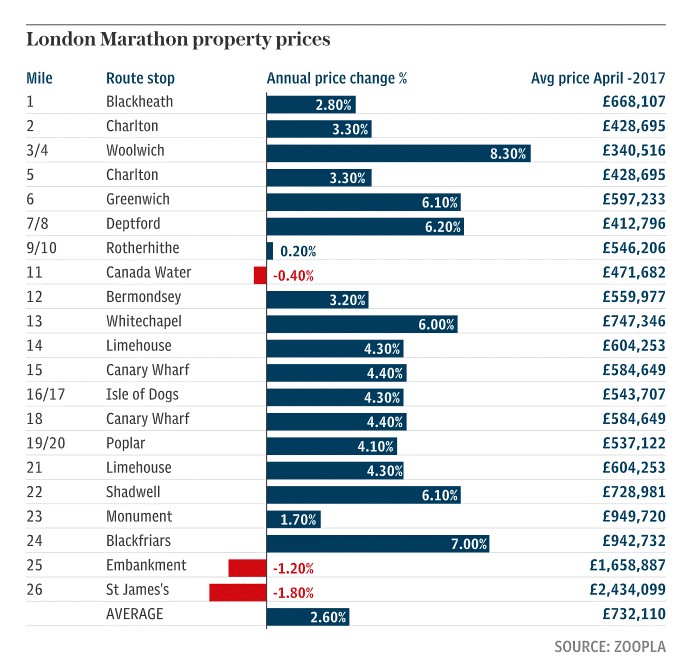344: UK property market update
09-17-2010
![]()
PropertyInvesting.net team www.google.co.uk
UK Property: This article tries to be objective, and to the point. We try and give the best advice we can to property investors who want to make serious money - the point is not to win a popularity contest. The report aims to be a frank appraisal of expectations in the UK property market off the back of the new coalition government and their policies that affect the economy.
 Expectations: Property prices are built around expectations well describe how expectations have changed in the last four months since the election and the new coalition formed.
Expectations: Property prices are built around expectations well describe how expectations have changed in the last four months since the election and the new coalition formed.
· The coalition has consolidated its position with credibility and looks most likely now to last quite some time possibly five years before the next election the fact both parties see eye-to-eye on the need to cut the deficit has left Labour isolated
· The IMF and Credit Agencies have given a thumbs up the UK has retained its AAA rating which has lowered borrowing cost for the government and financial institutions whilst stabilised Sterling
· The Labour leadership battle has become an almost irrelevant side show very little interest amongst most people - the context tends to highlight recriminations and the mistakes of the last government and contenders argue their points.
· Public sector cuts both services, jobs and benefits, are likely to hit proportionally the lower classes and people living in Wales, Midlands, the North, West and Scotland.
· Wealthy people are likely to see their tax bills drop in the next few years probably not for a while but the expectation is that it will come.
· Financial stability and Sterling stability have increased as the markets have looked kindly on the budget cutting measures being put in place.
· Many people have been holidaying back home in the UK this has benefitted tourism in the south of England and London despite a cool wet August.
· Policies being put in place and tight lending criteria for builders, businesses, investors and first time buyers plus tightening planning and building controls have almost stopped building in the UK this is likely to lead to a severe housing shortage in years to come
· There are almost no new houses being build only flats meanwhile British and foreign people want to live in houses and there is a shortage of good houses in the South of England and London.
· The government are working in concert with the Bank of England:
o The BoE are keeping interest rates low fiscal loosening
o The Government are raising VAT and tax, meanwhile cutting benefits and public sector employment fiscal tightening
o The balance of public sector investment should slowly shift to private sector investment
o GDP growth rates will remain low whilst this rebalancing takes place and unemployment will remain high
o Despite inflation staying stubbornly high around 3.3%, the BoE are expected to keep interest rates low so as to prevent the UK dipping back into recession and possible thereafter deflation.
Overall, this balancing act in attempting to clear up the mess left by the last Labour government seems so far to be working quite well. So what does this mean for the property investor, property prices and rental prices and demand?



Summer Over: Firstly, the summer lull has just ended as normal in the summer, property prices have come down in many areas. The acid test is whether they recover in September so far, there is not much evidence of a recovery of any note we expect property prices to drift down slightly for the remainder of 2010 but still end the year slightly higher than the start. But this as an average overall, and what we need to do is look at the different segments of the market. Firstly, if the property is not  within 70 miles of London, or in southern England, expect property prices to drop in 2011 as public sector jobs cuts start to bite. Remember 53% of jobs in Newcastle are public sector related (direct and indirect) not much industry any more this percentage is more than in Hungary before the collapse of the Soviet Union. Mid-West Wales also has a very high proportion of public sector jobs, as does most of the West Midlands these jobs were created as manufacturing jobs were lost by the Labour government keen to keep those voters sweat (it always happens, sorry to be so blunt public sector workers are twice as likely to vote Labour as private sector workers).
within 70 miles of London, or in southern England, expect property prices to drop in 2011 as public sector jobs cuts start to bite. Remember 53% of jobs in Newcastle are public sector related (direct and indirect) not much industry any more this percentage is more than in Hungary before the collapse of the Soviet Union. Mid-West Wales also has a very high proportion of public sector jobs, as does most of the West Midlands these jobs were created as manufacturing jobs were lost by the Labour government keen to keep those voters sweat (it always happens, sorry to be so blunt public sector workers are twice as likely to vote Labour as private sector workers).
Cornwall and Devon: In south-west England, despite the public sector jobs cuts, because of the flood of money from London and other wealthy places in the UK, plus increasing population from retiring and semi-retiring baby-boomers, and almost zero building, we expect property prices to keep rising. Summer in south-west England saw some pretty reasonable activity all things considered.

London: is likely to be the real winner as this city has the least exposure to public sector jobs cuts, most exposure to an expanding private sector and the Olympics are less than two years away. Meanwhile almost all the infra-structure upgrades in the UK are happening in London. The population is booming expect another 800,000 to be living in London in the next ten years where will they all live when building has slowed almost to a halt?
 Higher Yields: Property prices remain high in London and the first-time buyers have almost disappeared because mortgages are so difficult to come by the only first-time buyers get money from their rich parents this is far more common in the south of England and London and also helps to prop up property prices at the lower end of the market in London along with buy to let investors. Meanwhile employment remains strong. Rental yields are rising, rental demand is rising in part because first time buyers cannot buy any more because finance is not available or they cannot afford the payments or deposit. For buy to let investors who can handle the risk, London seems a fairly safe investment as long as property can be purchased at reasonable price. The capital gains tax at 28% was a bit of a disaster this taxes inflated gains remember so is totally skewed and unfair. But if you expect inflation generally in property in the next ten years and can borrow most of the money, you will be well protected against the ravages of inflation by leveraging up and buying property in London. Lets face it most experienced investors know their only chance to make serious money is through property, especially if inflation is rampant. What it means is that, if you borrow £100,000 and inflation is running at 3.5%, that £100,000 will only be worth £50,000 in 2020 money terms. But if the property prices rose from £100,000 to £200,000 in that period, you will have made £100,000 (or £72,000 after tax) and this would be worth £36,000 in todays money terms after tax.
Higher Yields: Property prices remain high in London and the first-time buyers have almost disappeared because mortgages are so difficult to come by the only first-time buyers get money from their rich parents this is far more common in the south of England and London and also helps to prop up property prices at the lower end of the market in London along with buy to let investors. Meanwhile employment remains strong. Rental yields are rising, rental demand is rising in part because first time buyers cannot buy any more because finance is not available or they cannot afford the payments or deposit. For buy to let investors who can handle the risk, London seems a fairly safe investment as long as property can be purchased at reasonable price. The capital gains tax at 28% was a bit of a disaster this taxes inflated gains remember so is totally skewed and unfair. But if you expect inflation generally in property in the next ten years and can borrow most of the money, you will be well protected against the ravages of inflation by leveraging up and buying property in London. Lets face it most experienced investors know their only chance to make serious money is through property, especially if inflation is rampant. What it means is that, if you borrow £100,000 and inflation is running at 3.5%, that £100,000 will only be worth £50,000 in 2020 money terms. But if the property prices rose from £100,000 to £200,000 in that period, you will have made £100,000 (or £72,000 after tax) and this would be worth £36,000 in todays money terms after tax.

Bankers Back: Anyway, looking forward, its likely the more business friendly environment will lead to these companies slowly expanding agai n. Company taxes are likely to drop in the 3-5 year time frame. Bankers bonuses will cut record levels this year despite the rather sad state of the economy. Remember we are paying 6% for our mortgages, but the banks get the money for 0.5% or close to it from the Government thats a gigantic 5.5% mark-up, the biggest in history. So even the most inept Bank Manager can make profits in this environment and this will then feed through firstly into record bonuses by end 2010 but then into investment property in London and prime-London real estate. So expect house prices in Notting Hill, Islington, Battersea and Kensington-Chelsea to rise in early 2011 as this bonus money hits. The rich bankers arent stupid they know the best way to protect their money is to buy high-end property with inflation likely in the next few years. There will be the same old public outcry, but dont expect the most bankers to give their bonuses to charity. Like footballers, they have a relatively short career, and each year is a chance to head for the hills. Or head for the estate agents.
n. Company taxes are likely to drop in the 3-5 year time frame. Bankers bonuses will cut record levels this year despite the rather sad state of the economy. Remember we are paying 6% for our mortgages, but the banks get the money for 0.5% or close to it from the Government thats a gigantic 5.5% mark-up, the biggest in history. So even the most inept Bank Manager can make profits in this environment and this will then feed through firstly into record bonuses by end 2010 but then into investment property in London and prime-London real estate. So expect house prices in Notting Hill, Islington, Battersea and Kensington-Chelsea to rise in early 2011 as this bonus money hits. The rich bankers arent stupid they know the best way to protect their money is to buy high-end property with inflation likely in the next few years. There will be the same old public outcry, but dont expect the most bankers to give their bonuses to charity. Like footballers, they have a relatively short career, and each year is a chance to head for the hills. Or head for the estate agents.
The North: But if you are living in Bradford, Glasgow, Swansea or Liverpool dont expect the same thing to be happening. The property market will be depressed with no bonus money, public sector jobs cuts, struggling manufacturing sector and increasing taxes through VAT and reduction in benefits with higher unemployment this could lead to depopulation if these people head south. The north-south divide will increase. Labour spent billions trying to reduce it, but its going in the other direction again for the next five years. In northern industrial areas there will be many empty properties, low rental demand and struggling businesses. The only northern place that looks set for a healthy time is Aberdeen continuing to boom off the back of North Sea and international oil and gas engineering and investment. Upper end cities and towns like Edinburgh, York, Harrogate, Jesmond, Headingley and Skipton will do far better than lower end places like Bolton, Bury, Bootle, Glasgow east and Scunthorpe.
Finally, if you want to review the Special Reports on Peak Oil and related topics, please click below on these recent reports:
277: Country Ranking in a Peak Oil World with Resources Scarcity
275: Cars - The Absurdity and Necessity
274: How susceptible are countries to high energy prices? Impact for property investors..
270: Turbulence in Property Markets Caused By Oil Price Spikes and Peak Oil
265: How to Profit from Peak Oil - USA, UK and Europe
264: Another oil price spike is just about to hit us...watch out
263: Investing in Property with Energy in Mind "post Peak Oil"
262: Electric Revolution, the Environment and the Next Energy Crisis
257: Property investing, the UK economic situation and oil & gas
244: It's the oil price again - it caused the recession
243: Oil price crash sows seed for next massive oil spike
242: Oil, Cars & Property - what we'd do if we were UK Prime Minister
We hope this Special Report has helped you put property investing into perspective and has helped stimulate some positive thoughts on how to improve your business. If you have any queried, please contact us on enquiries@propertyinvesting.net


